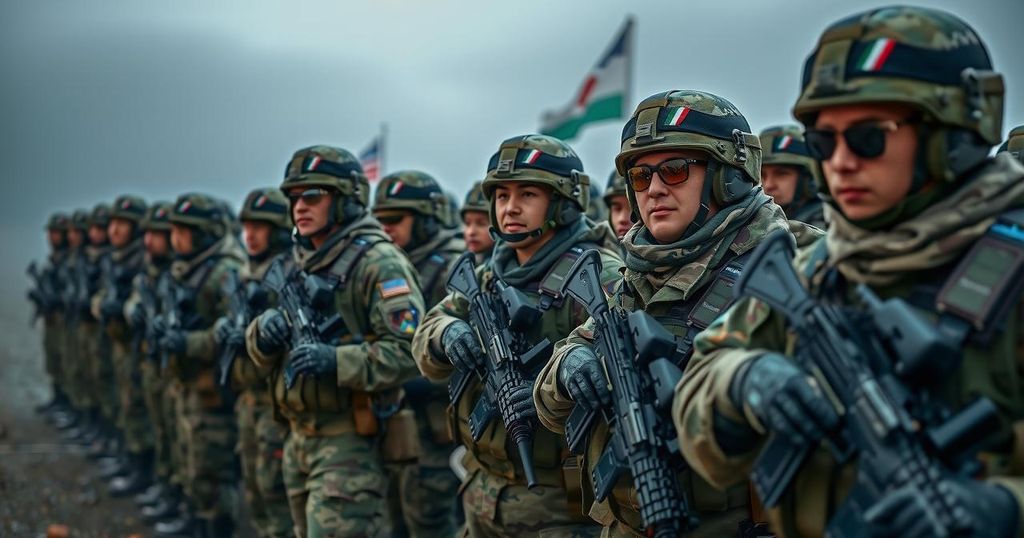Potential North Korean Military Support to Russia Raises Global Security Concerns

Recent reports suggest North Korea may send 100,000 troops to support Russia in Ukraine, a move feared to escalate the conflict and influence global security dynamics. This ongoing partnership poses challenges not only for Ukraine but also for regional stability, particularly concerning US-China relations. As discussions occur among global leaders, the impact of North Korean military involvement remains a critical concern.
Recent analyses suggest that North Korea may consider sending a significant number of troops, potentially reaching up to 100,000, to support Russian President Vladimir Putin in the ongoing conflict in Ukraine. However, this deployment is not expected to occur in one batch but rather in rotating groups over time. Ukrainian officials have speculated that North Korea might deploy up to 15,000 troops in specific regions, particularly the Kursk area and occupied Eastern Ukraine, with cycles of rotation every few months. The implications of such military reinforcement from North Korea are alarming for Ukraine’s allies, who fear that it could intensify an already escalating conflict in Europe. Additionally, the partnership between Kim Jong Un and Vladimir Putin raises concerns over the security dynamics in the Indo-Pacific region amid rising tensions among the United States, China, and regional powers. In discussions regarding the ongoing crisis, German Chancellor Olaf Scholz is expected to engage Chinese President Xi Jinping on the importance of leveraging China’s influence to de-escalate the situation. This highlights the global ramifications of the conflict and the need for a coordinated response among nations. Allies at recent APEC meetings have expressed similar fears about the new global dimensions of the war. Despite China being a key supporter of both Russia and North Korea, it has maintained a cautious silence regarding North Korea’s military contributions to Russia. This may indicate internal discontent within the Chinese government regarding the military collaboration, especially as President Xi seeks to manage geopolitical tensions on the Korean Peninsula. North Korea has already dispatched over 10,000 troops and provided various arms and ammunition to Russia as part of their support operations. Furthermore, there is a concern that North Korea may seek advanced military technology transfers from Russia, which could have profound implications for regional security. As the conflict continues, Ukraine has been advocating for greater access to Western military technology to effectively counter Russian offensives, indicating the complexity and the stakes involved in this multifaceted international crisis.
The evolving partnership between North Korea and Russia signifies a shift in geopolitical alliances that could exacerbate existing conflicts. With North Korea potentially sending troops to assist Russia in its military operations against Ukraine, the implications for global security and regional stability are significant. The collaboration between Kim Jong Un and Vladimir Putin is viewed with apprehension by Ukraine and its allies, particularly in light of the ongoing war that has already claimed numerous lives and reshaped the European security landscape since World War II. The shifting dynamics also place additional pressure on China as it navigates its relationships with both Russia and North Korea while managing its strategic interests in the region.
The possibility of North Korea sending troops to assist Russia in the Ukraine war raises serious concerns for international security, particularly for Ukraine and its allies. The ongoing military collaboration between Kim Jong Un and Vladimir Putin not only complicates the geopolitical landscape but also signals a potential shift in power balances in the Indo-Pacific region. As countries like Germany and China engage in discussions around this evolving situation, the necessity for strategic dialogue and coordinated action becomes increasingly clear to manage the potential escalation of the conflict.
Original Source: m.economictimes.com







